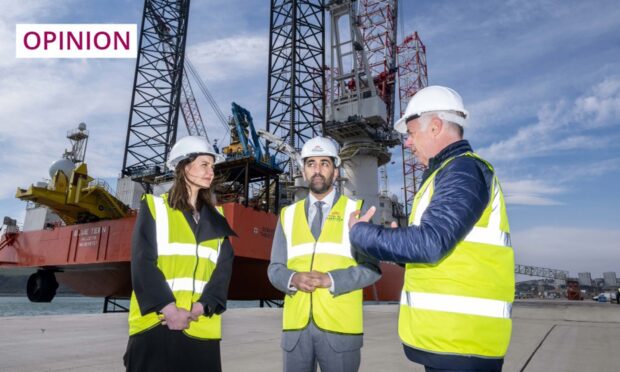Unite is Scotland’s largest trade union for the onshore and offshore oil and gas industry.
We represent thousands of workers, from caterers, drillers and scaffolders to crane operators, deck crew and technicians, as well as many more in the wider supply chain.
There has been an unprecedented scale of industrial disputes in the industry over the last year. There is no doubt that this is directly linked to the profit bonanza currently being enjoyed by oil and gas operators.
Unite has secured a string of successes which have improved the jobs, pay and conditions of workers, often on the back of workers being prepared to fight for a fair wage through strike action.
The successes include overall salary increases worth 10% at Stork, 10% at the Wood Group, 10% at Bilfinger, 9% at BP Petrofac and, for Sullom Voe terminal workers, an 8.1% pay rise, to name a few.
In May 2023, we also signed a recognition deal with the offshore operator CNOOC Petroleum Europe Limited, covering around 140 offshore workers. This was followed by Unite signing another union recognition agreement with Repsol Resources UK Ltd in December, covering around 350 workers and adding to our existing agreement with Total Energies.
Serious concerns about rhetoric versus reality
One of our biggest priorities is the livelihoods of our members in the oil and gas industry. For Unite, it’s absolutely critical to ensure that workers can gradually move into renewables and decarbonised jobs through a just transition.
We are equally clear that these jobs have to reflect the wages workers currently earn. If not, there could be a major deflationary effect, causing a significant downturn for the north-east economy, with ramifications for the rest of the nation. On both these aspects, Unite has serious concerns about the rhetoric versus the reality.
Tell us where the tens of thousands of green jobs are being created. Only 6,400 jobs in the Scottish onshore and offshore wind sector were estimated to have been created by 2021. This was despite the SNP-led Scottish Government in 2010 promising 28,000 direct jobs in the offshore wind industry alone by 2020.
From our perspective, there is not only a misconception about what a just transition means, but what it actually entails, step by step, for workers. The process is in danger of becoming all things to all people; an empty slogan which means very little in practice to workers, other than generating fears over imminent job cuts. This is unacceptable to us.
Empty slogans have consequences
We want the Scottish and UK Governments to ensure that a just transition is worker-led, because it is their expertise, skills and knowledge which can help deliver the decarbonisation of the oil and gas industry we all aspire to.
Unite regularly meets with oil and gas companies, and there is a growing shared understanding about the need to move towards net carbon zero while simultaneously protecting jobs. Unfortunately, the vast majority of politicians in government, or those aspiring to be in government, do not fully understand that these two aspects need to be done in tandem.
Politicians seem to be caught up in election tactics over banning all new exploration licences, which Unite does not support, or they meekly accept the decisions of corporations to cut oil and gas jobs because it serves their interpretation of what a just transition means.
The recent decision by Petroineos to begin transitioning its Grangemouth refining operations at the complex is a prime example. By 2025, the oil refinery could be primarily operating as an import and export oil terminal facility. The proposal has brought into stark reality the consequences of empty slogans.
Oil and gas workers need concrete and fully-costed plans
The reality is that oil and gas will be part of the energy mix until at least 2050. We need to explore every option and policy tool to protect jobs, and to support the accelerating efforts by industry to decarbonise. This process in itself could create tens of thousands of jobs through carbon capture and storage, hydrogen, and offshore electrification.
Around 220,000 jobs remain dependent on the oil and gas industry across the UK, with 93,600 estimated to be based in Scotland. We can’t lose well-paid and highly-skilled jobs only for us to then increasingly rely on supplies from other countries, including undemocratic regimes with dodgy human rights records.
We cannot allow oil and gas workers to become the coal miners of our generation
Yet, Unite does not see any Scottish or UK strategy on how to plan for nor address these critical issues – and there is certainly not one which is worker led. Unite is clear that we cannot allow oil and gas workers to become the coal miners of our generation.
Oil and gas workers need concrete and fully-costed plans which provide cast-iron guarantees that they will not be thrown under a bus in the transition to net zero. Our fear is that’s what is in the pipeline unless a coherent national energy strategy is put in place.
Derek Thomson is Scottish secretary for UK trade union, Unite



Conversation